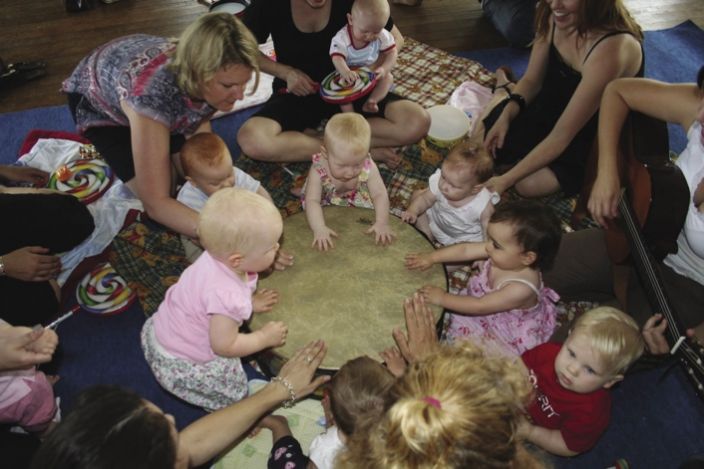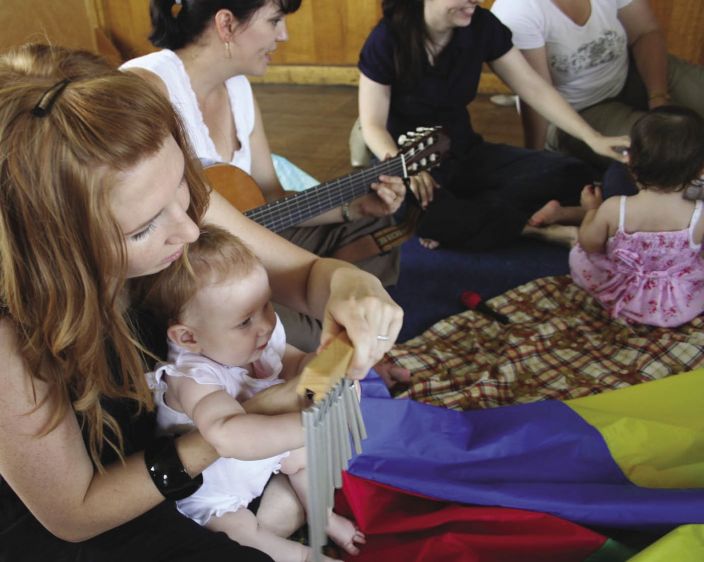
The children are immersed in the activity, enjoying themselves and supported by the music therapist. She provides the musical and therapeutic space for them to learn and practice new skills such as listening, leadership, waiting, self-regulation, following instructions and more. All the while, their teachers are observing the fun and musical environment that has been created for the children to practice non-musical learning activities in.
It’s the sort of exercise Registered Music Therapist Vicky Abad would like to see regularly included in early childhood services’ daily musical activities. It’s also the type of game that can be played without a musical therapist, but she says services are increasingly bringing in the experts to enhance their existing programs.
“Music therapy is a research-based practice and profession in which music is used to actively support people as they strive to improve their health, functioning and wellbeing. For this reason, music therapists have traditionally worked where there is an identified need, such as in special education or children’s hospitals,” Vicky says.
In more recent years, music therapists have also worked with people in the community with different needs, such as empowering parents to use music when they are undergoing family challenges and with children who have suffered from trauma, including those impacted by bushfires and floods.
“Young children don’t always have the words or capacity to process these situations verbally so music provides a really effective, non-verbal channel.
“Many centres really want to support early learning and growth and are exploring ways to do this – language and music are two great ways.
“Centres should be using music every day, all the time. To be human is to be musical and babies are born ready for music, with adult hearing ability.
“Music therapists don’t claim to own music, music is for everyone, and we are keen to share our knowledge and training to help make a simple game really effective and to keep children in touch with their emotions,” Vicky says.
“The way we use music has been researched and practiced. In early childhood settings we can work effectively with educators and carers to provide the best musical learning environment for children to produce non-musical goals such as language skills and social, emotional, cognitive, physical and behavioural development.



































































































































